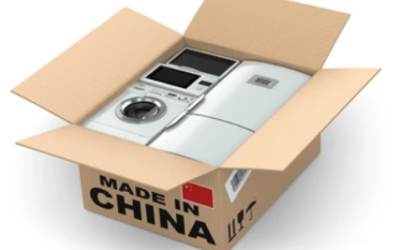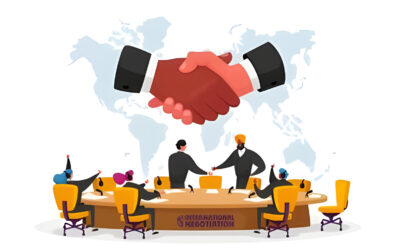6 Steps to Successful Product Sourcing with a China Sourcing Agent

Introduction
In today’s global marketplace, sourcing products from China can offer numerous advantages, including competitive pricing and a wide range of manufacturing capabilities. However, navigating the complexities of international trade and finding the right suppliers can be challenging. That’s where a China sourcing agent comes in. In this comprehensive guide, we’ll explore the six essential steps to successfully sourcing products with a China sourcing agent.
Researching Potential Agents
Identifying Suitable Candidates
Before diving into the sourcing process, it’s crucial to research and identify reputable China sourcing agents. Look for agents with extensive experience, a strong network of suppliers, and a proven track record of success.
Evaluating Track Record
Evaluate the track record of potential agents by reviewing their past projects, client testimonials, and performance metrics. A reliable agent should have a history of successful collaborations and satisfied clients.

Defining Your Requirements
Product Specifications
Clearly define your product specifications, including materials, dimensions, and quality standards. Providing detailed specifications upfront will help ensure that your sourcing agent understands your requirements.
Quantity and Budget
Determine the quantity of products you need and establish a budget for your sourcing project. Communicate your budget constraints to your sourcing agent to ensure that they can find suppliers that meet your financial requirements.
Finding Suitable Suppliers
Supplier Research
Finding suitable suppliers is a crucial step in the sourcing process, and it begins with thorough supplier research. Once your sourcing agent has a clear understanding of your requirements, they will embark on an in-depth investigation to identify suppliers that meet your criteria. This research involves examining various factors, including production capabilities, quality standards, and pricing.
During supplier research, your sourcing agent will assess each potential supplier’s ability to meet your production needs. They will evaluate factors such as manufacturing capacity, technological capabilities, and production lead times to ensure that the suppliers can deliver products in a timely manner and at the required volume.
In addition to production capabilities, your agent will also scrutinize the quality standards maintained by each supplier. This includes assessing their quality control processes, adherence to industry regulations, and track record of product quality. Ensuring that suppliers maintain high-quality standards is essential to delivering products that meet your specifications and satisfy customer expectations.
Supplier Verification
Before entering into any agreements with potential suppliers, your sourcing agent will conduct thorough supplier verification checks. This involves verifying the credentials and reputation of each supplier to ensure that they are reputable and trustworthy partners. Background checks may include examining the supplier’s business registration, certifications, customer references, and any past performance records.
By conducting comprehensive supplier research and verification, your sourcing agent can identify reliable and reputable suppliers that align with your business needs and objectives. This diligent approach helps mitigate risks and ensures smooth and successful sourcing operations.
Negotiating Terms and Pricing
Initial Discussions
When it comes to negotiating terms and pricing, the first step is initiating discussions with potential suppliers. Your sourcing agent will take the lead in these initial conversations, setting the stage for the negotiation process. During these discussions, they’ll focus on understanding the supplier’s offerings, capabilities, and pricing structures. By gathering this information, they can assess the feasibility of working with the supplier and determine whether their offerings align with your requirements and budget.
- Setting the Agenda: Your sourcing agent will establish the agenda for the discussions, outlining the key points to be covered and setting clear objectives for the negotiation.
- Understanding Supplier Offerings: They’ll delve into the details of the supplier’s offerings, gaining insights into their product range, quality standards, and production processes.
- Exploring Pricing Options: Your agent will explore various pricing options with the supplier, seeking to understand their pricing structure and identifying opportunities for negotiation.
- Clarifying Requirements: They’ll clarify your requirements and preferences to the supplier, ensuring that they have a clear understanding of what you’re looking for in terms of products, quantities, and delivery timelines.
Contract Negotiation
Once the initial discussions have taken place and terms have been outlined, the next step is contract negotiation. This stage involves formalizing the agreements reached during the initial discussions and finalizing the terms of the contract with the selected suppliers.
- Drafting the Contract: Your sourcing agent will draft the contract based on the agreements reached during the initial discussions. They’ll ensure that all terms and conditions are clearly outlined and accurately reflect the agreed-upon terms.
- Negotiating Terms: During contract negotiation, your agent will negotiate any remaining terms that may require further clarification or adjustment. This could include pricing details, delivery schedules, payment terms, and quality standards.
- Ensuring Clarity: They’ll ensure that the contract is written in clear and concise language, avoiding any ambiguity or confusion. This helps prevent misunderstandings and disputes down the line.
- Securing Signatures: Once the contract negotiations are complete, your agent will work to secure signatures from both parties, officially binding the agreement. They’ll oversee the signing process and ensure that all necessary documentation is completed accurately.
Quality Control and Inspection
Product Sampling
Before production commences, your sourcing agent will coordinate the sampling process. They will liaise with the selected suppliers to obtain samples of the products that are being sourced. These samples will then be sent to you for thorough inspection and evaluation.
During this stage, you have the opportunity to closely examine the quality, design, and functionality of the samples. You can compare them against your specifications and requirements to ensure they meet your standards. Any discrepancies or issues can be identified and addressed before full-scale production begins.
Factory Inspection
In addition to product sampling, your sourcing agent will conduct regular factory inspections throughout the production process. These inspections are crucial for monitoring the quality control measures implemented by the supplier and ensuring that production is proceeding according to plan.
During factory inspections, your agent will visit the production facilities to assess various aspects of the manufacturing process. This includes evaluating the working conditions, machinery and equipment, adherence to safety protocols, and compliance with quality standards.
Furthermore, your agent will inspect the production line to check for any defects, inconsistencies, or deviations from the approved specifications. They will also review the production schedule to ensure that timelines are being met and that there are no delays or bottlenecks in the manufacturing process.
By conducting thorough factory inspections, your sourcing agent can identify any issues or areas of concern early on and take corrective action to ensure that the final products meet your expectations. This proactive approach helps to minimize risks and maintain the quality and integrity of the sourced products.
Shipping and Logistics
Logistics Coordination
- Transportation Arrangement: Your sourcing agent will liaise with transportation providers to organize the movement of goods from the supplier’s location to the designated destination. This may involve selecting the appropriate mode of transportation, such as sea freight, air freight, or land transportation, based on factors like cost, time constraints, and the nature of the goods.
- Customs Clearance: Your agent will oversee the customs clearance process, which includes preparing and submitting the necessary documentation to customs authorities. This ensures that the goods can legally enter or exit the country without any issues. They’ll also handle any customs duties or taxes associated with the shipment.
Documentation and Compliance
- Document Preparation: Your sourcing agent will be responsible for preparing all relevant shipping documents, such as commercial invoices, packing lists, and bills of lading. These documents are essential for documenting the contents of the shipment and facilitating customs clearance.
- Compliance Management: Ensuring compliance with import/export regulations is crucial to avoid delays or penalties. Your agent will stay up-to-date with the latest regulatory requirements and ensure that all documentation meets the necessary standards. They’ll also work to resolve any compliance issues that may arise during the shipping process.
Conclusion
Successfully sourcing products with a China sourcing agent requires careful planning, diligent research, and effective communication. By following these six essential steps, you can streamline the sourcing process, mitigate risks, and ensure a successful outcome for your business.
Recent Posts
- Budget-Friendly Imports: Strategies for Cost Control When Importing Goods From China
- Bridging Cultures: Navigating Cultural Aspects in China Imports
- Guide to working with a sourcing agent in China for startups
- How China Sourcing Agents Can Transform Your Business
- Exploring the Benefits of Collaborating with a China Sourcing Agent







Recent Comments